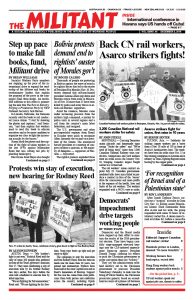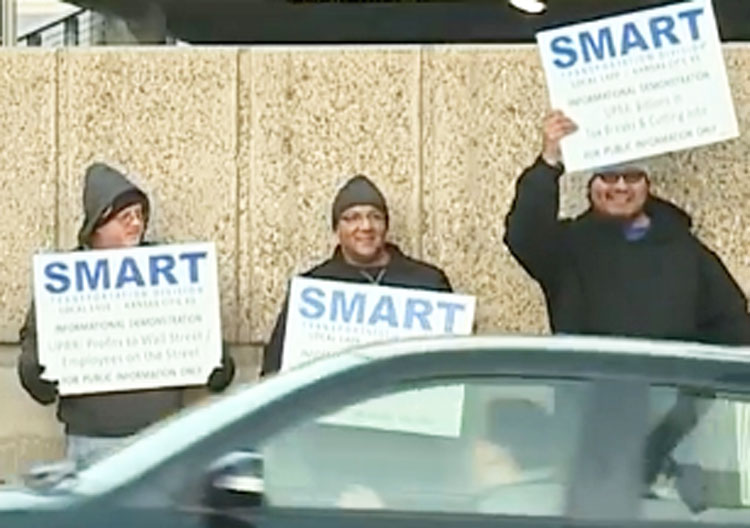LINCOLN, Neb. — Members of International Association of Sheet Metal, Air, Rail, and Transportation Workers — known as SMART — Transportation Division Local 1409 organized an informational picket Nov. 5 in downtown Kansas City, Missouri, to tell people about how Union Pacific rail bosses are laying off workers and threatening rail safety in the area. The unionists carried signs saying, “UPRR billions of tax breaks and cutting jobs.” Over 170 local members attended.
“In the interest of the rail workers and the public, we need to organize for workers control, more inspections of trains, not less” Lance Anton, a SMART conductor here, told the Militant.
SMART members, conductors and locomotive engineers have been under attack by the rail bosses in their drive to boost profits and stock values through speedup, crew cuts and harassment.
Union Pacific, one of the largest Class 1 railroads in the U.S., announced layoffs of 200 workers in the Kansas City area in October. Many have a decade or more experience as carmen, workers who inspect and repair the rail cars.
Union Pacific says it is transferring nearly all its train switching operations from the Neff Yard in Kansas City, Missouri, to a rail yard in Kansas City, Kansas. UP told KSHB-TV the yard closure was “a result of our efforts to streamline operations.” In other words, to squeeze more work out of less workers. They claimed this wouldn’t affect safety, telling the TV news crew, “Union Pacific values safety above all else.”
Matt Sweeney, a UP carmen for 13 years who was laid off last month, told the TV crew covering the picket that just wasn’t true. “What would have been two guys inspecting both sides of a train and doing a thorough job, taking however much time it takes, now they’ve got one guy doing it, and he’s doing one side” of the trains, he said.
“With some of the trains carrying oil or chemicals, lack of inspections could result in serious consequences,” Sweeney said. “If a hazmat train were to derail, you could have major issues.”


